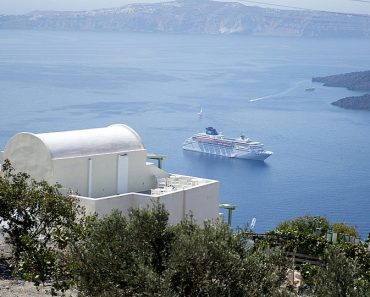FlixBus is expanding its presence in Southeast Europe this summer with a fresh set of international and seasonal routes. The new offerings link Bulgaria with both Greece and Romania, responding to increased seasonal demand and reinforcing the company’s push for accessible, low-emission travel options across the region. With enhanced connections and flexible schedules, the company continues its mission to make sustainable travel more attractive and affordable.
Starting June 19, FlixBus will launch two daily routes from Sofia to Thessaloniki, catering to the high interest from Bulgarian travelers. Passengers can choose between a morning departure at 07:10, arriving by 12:25, or an evening option leaving Sofia at 18:00 and reaching Thessaloniki at 23:00. The return legs leave Thessaloniki at 11:00 and 17:30, providing options suited to both short weekend getaways and longer stays.
In addition to Thessaloniki, a new overnight line connecting Sofia and Athens will operate three times a week – on Wednesdays, Fridays and Sundays. The route departs Sofia at midnight and travels through Thessaloniki, Katerini, Larissa, Volos and Lamia before reaching Athens at 12:05 the following day. Return trips from the Greek capital are scheduled for Thursdays, Saturdays and Mondays, departing at 17:35 and arriving in Sofia early the next morning. This line also includes stops in several Bulgarian cities, such as Ruse, Veliko Tarnovo, Blagoevgrad and Sandanski.
Prices remain competitive, with tickets starting at 9.99 BGN for the Sofia–Thessaloniki leg, 20.99 BGN to Volos, and 25.99 BGN to Athens. Travelers can purchase tickets via FlixBus’s Bulgarian website, mobile app, or through over 150 partner travel agencies in the country.
As of June 12, FlixBus is also resuming its seasonal services linking Romania with Bulgaria’s Black Sea resorts. These lines will operate up to five times per week, connecting Bucharest and other cities in Romania with Bulgarian beach destinations such as Golden Sands, Albena, Balchik, Obzor, Byala, Sunny Beach and Burgas. The direct line between Bucharest and Veliko Tarnovo is also back in operation, prompted by strong demand for travel to the cultural and historical Bulgarian town.
These seasonal connections not only enhance regional mobility, but also encourage cross-border tourism and short-term leisure trips, making car-free travel to the coast a convenient reality.
The expansion comes at a time when international travel is on the rise. According to Bulgaria’s National Statistical Institute, 8.8 million trips abroad were made by Bulgarians in 2024, marking a 7.9% increase compared to the previous year. Greece, Turkey, Romania and Serbia rank among the top destinations—countries already well integrated into FlixBus’s network.
Meanwhile, Bulgaria welcomed 13.2 million foreign visitors last year, 4.9% more than in 2023. Notably, more than a third of these visits were transit-related, further underscoring the country’s role as a strategic crossroads in the region. For many of these travelers, buses offer a practical and budget-friendly alternative to flying or driving.
FlixBus says its long-distance buses are tailored for both comfort and sustainability. Passengers onboard benefit from free Wi-Fi, individual power outlets and USB ports, reclining seats with extra legroom, air conditioning and onboard restrooms. A GPS tracking feature in the FlixBus app allows travelers to follow the trip in real time and receive updates.
“Our aim is to offer a travel experience where neither comfort nor price is sacrificed,” said Snezina Koleva, FlixBus Bulgaria’s Senior Manager for Business Development. She noted that the newly introduced summer lines are part of the company’s wider effort to promote affordable alternatives that generate less pollution than air or car travel.
FlixBus’s current model emits just 27.8 grams of CO₂ per passenger per kilometer – a fraction of what personal vehicles or airplanes produce. The company has set science-based targets to achieve carbon neutrality in Europe by 2040 and worldwide by 2050.
Since entering the Bulgarian market in March 2018, FlixBus has linked 20 cities across the country to its wider European network, which spans 44 countries and over 6,800 destinations. From Bulgaria, travelers can reach 11 countries directly, including Greece, Turkey, Serbia, Germany, Austria, Romania and Croatia.
In 2021, FlixBus opened its Sofia Knowledge Hub – one of the company’s global centers for innovation and operations. This hub plays a key role in enhancing digital tools, developing services, and supporting customers worldwide.
“We’re investing not only in route expansion but in the future of mobility in Southeast Europe,” Koleva added. “Our goal is to make travel across the region more accessible, more connected, and more sustainable.”
Source: FlixBus press release







